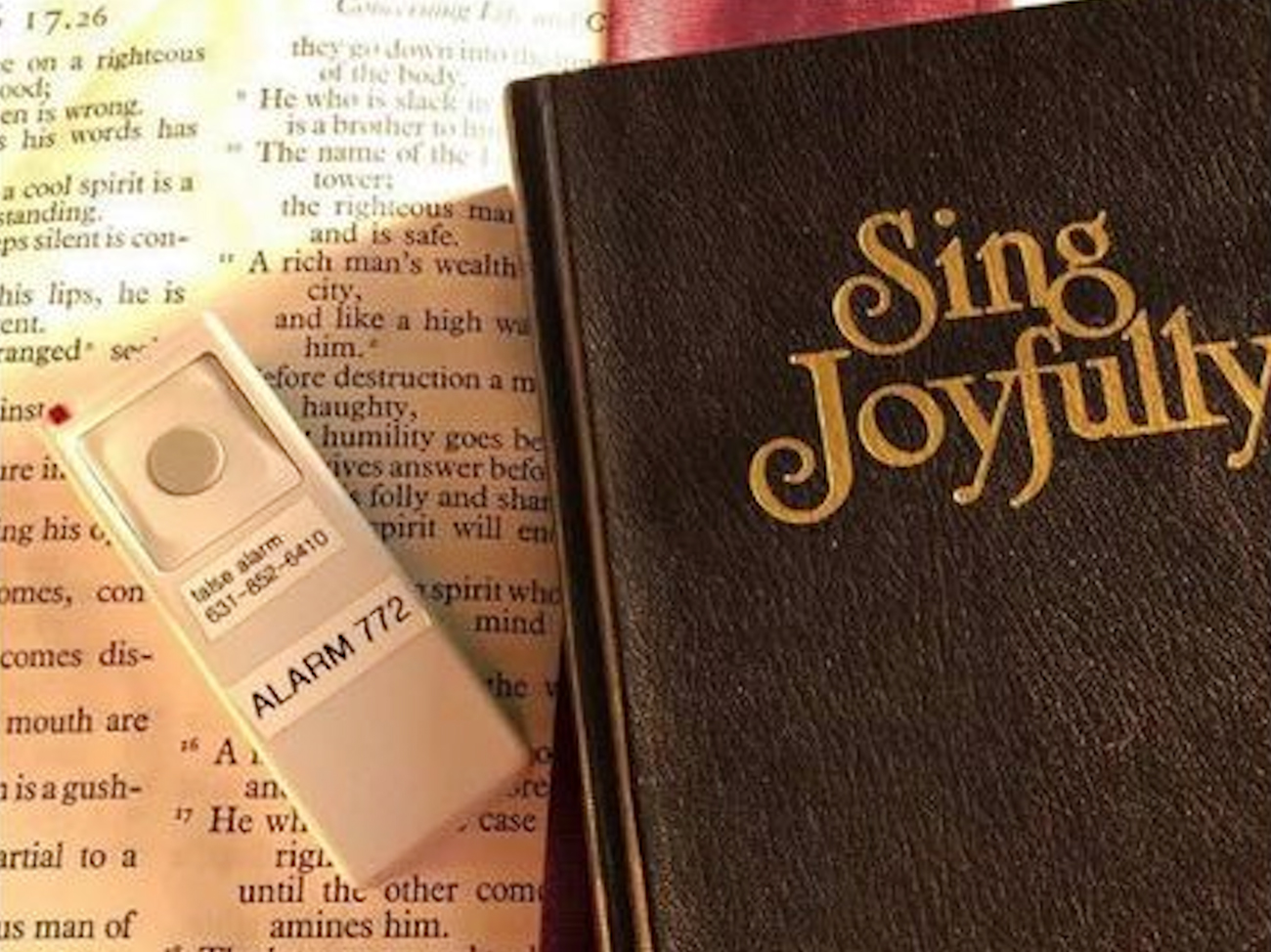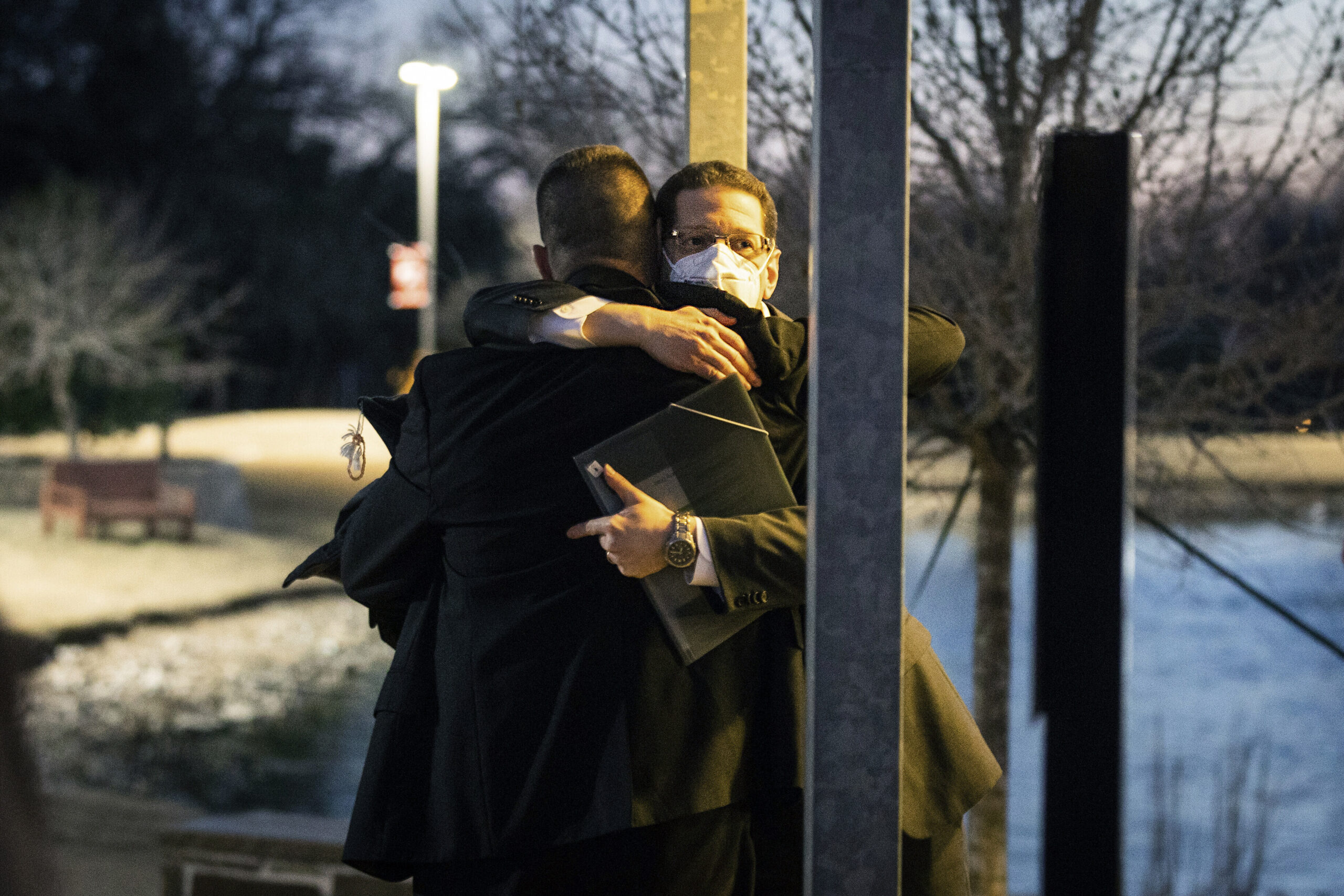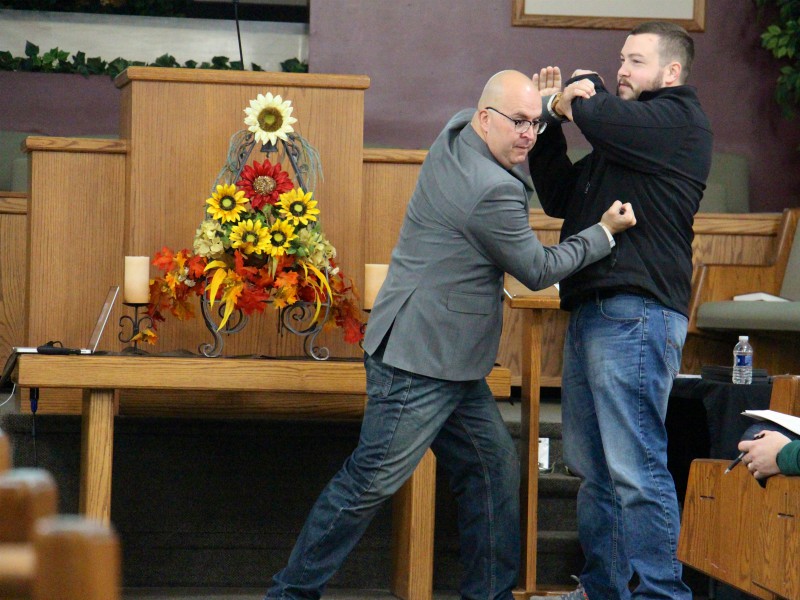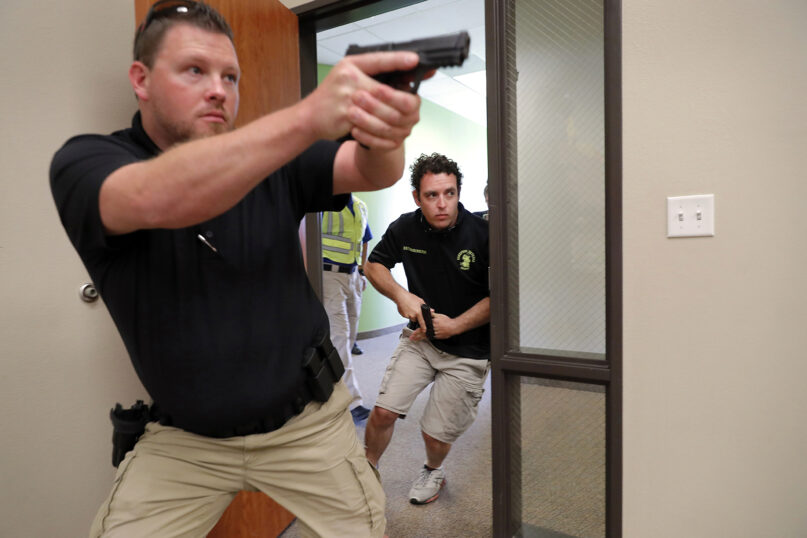(RNS) — A letter from the U.S. Department of Justice arrived about three weeks ago, stating, “I am contacting you because you were identified by law enforcement as a victim or potential victim during the investigation of the above criminal case,” and it gave the lead prosecutor’s name and a number.
“According to the complaint,” the letter continued, “since at least 2013, the defendant has been sending individuals associated with the LGBTQ+ community threatening letters.”
A local newspaper, the Long Island Advance, detailed that the person named in the letter was “threatening to assault, shoot, and bomb LGBTQ+ affiliated individuals, organizations, and businesses.”
It was not the first time the church or I have received threats. In October 2020, I was threatened with strangulation in wording that skillfully avoided what could legally constitute a crime. My offense? Ringing our church tower’s bell 240,000 times, every six seconds, for three weeks, to commemorate each death from COVID-19. (The bell’s volume was lowered at night.)
Prior to that, at the suggestion of the police department, we were given a “panic button” to be placed on our pulpit beside the Bible. The device would bypass the dispatcher and trigger an immediate visit by police. It also allowed me to summon the police if it was unsafe to speak or if I was medically incapable of doing so. The button was there for over a year and only had to be used twice.

The “panic button” at Congregational Church of Patchogue, New York. Photo courtesy of the Rev. Dwight Lee Wolter
Prior to that, a training — “Safety in the Sanctuary” — was held at our church by Homeland Security. We also hosted an interfaith seminar on security in houses of worship at the urging and cooperation of then-New York Gov. Andrew Cuomo’s “No Hate in Our State” program.
The local police department has our church blueprints and the names, numbers and addresses of our church leaders. We have evacuation plans, lines of communication, special procedures for children and physically challenged persons and those with the authorization to issue “shelter in place,” “flee” and “all clear” orders. Because of those and other initiatives, we feel prepared to respond to perceived or actual threats.
Prior to that, we hosted the funeral of a hate crime murder victim. My son, then in high school, advised me not to eat in a certain restaurant in town because I “would be eating spit” because of contempt for me and the church for “taking the side of the brown people.” Our church subsequently held film screenings, panel discussions, dance and food festivals and seminars on such things as housing and agricultural complicity in employment and pay disparities against undocumented laborers.
Resistance to our work came from hateful persons who wrote anonymous letters about having tried to shoot us, only to fail due to police presence. Resistance also came from some progressive church people who defamed us for “taking the side of the police” by allowing Homeland Security “military-style training” in our sanctuary.

Congregation Beth Israel Rabbi Charlie Cytron-Walker, facing camera, hugs a man after a healing service Jan. 17, 2022, at White’s Chapel United Methodist Church in Southlake, Texas. Cytron-Walker was one of four people held hostage by a gunman at his Colleyville, Texas, synagogue on Saturday. (Yffy Yossifor/Star-Telegram via AP, File)
We are certainly not alone. This month a man entered Congregation Beth Israel in Colleyville, Texas, and kept four people hostage for 11 hours. In 2019, more than 300 people were massacred on Easter at Christian churches in Sri Lanka. There was a machete attack in New York at a rabbi’s house during Hanukkah that resulted in the rabbi’s death three months later. A synagogue in California was attacked on the final Shabbat of Passover. The Tree of Life Synagogue in Pennsylvania was attacked during Shabbat services. Eleven were killed and many wounded. During Ramadan, there were numerous attacks at mosques. When we tried to pray for them, there were so many recent incidents that we kept getting the names, dates and places mixed up.
Many churches and houses of worship of other traditions have done far more and far better than we have at protecting people from danger and ministering to and grieving the ones they could not protect. This is not, however, a call to thank them or a call to prayer, although thanking and praying for them is good.
This is a wakeup call for all of us. This is a call to train and equip houses of worship and their leaders for combat. It sickens me, but it also is empowering to write the sentence I just wrote.
I was born and raised in a military family. I disavowed the ways and wages of war. Trained in violence, I chose to live in peace. Schooled in theology and ordained by the United Church of Christ, I feel in every cell of my body that I was called by God to preach and practice the ways of Jesus the Christ.
Little did I know that my call would lead me to being trained at the police academy as part of a clergy-police council. In seminary, I didn’t think that I’d one day consider welcoming a police officer and member of the congregation to pack a piece during a sermon about peace that surpasses all understanding.
I didn’t think about the many threats to houses of worship that come from within, not without, such as non-custodial parental abductions of children at “pick up” after Sunday school. I didn’t think about threats of violence by a senior church member and honorable vet with dementia. I am sure thinking about them now as a result of my training and as a result of my experience in the church.
A church with a panic button. Lord, have mercy. Many other faith traditions, such as Judaism and Islam, seem to be much more advanced in security. Christian churches seem to be more in denial. Christians in America are not persecuted, targeted minorities, especially if they keep their heads down and don’t get too involved with the wily world.

Barry Young, vice president of Church Security Ministries at Strategos, demonstrates using a tactical pen for self-defense on Marc Anderson of Kalamazoo, Mich., at an intruder awareness and response training Nov. 11, 2017, at Prairie Baptist Church in Scotts, Mich. RNS photo by Emily McFarlan Miller
The church is actually a great place to commit a crime. Insisting that we are in opposition to the wicked ways of the world, we render ourselves vulnerable to attack. Citing dwindling finances, we refuse to invest in life-saving security. Googling statistics, we scoff at the unlikeliness of such an attack and may ridicule the proponent of church security as being alarmist. Proclaiming that we will meet anyone, wherever they are on life’s journey, into our midst, we invite danger.
Dylann Roof knew quite well, I have no doubt, that he would be offered coffee, cake, acceptance and Bible-based conversation before he slaughtered almost everyone in the room at Mother Emanuel church in Charleston, South Carolina. Turning a suspicious eye to the “other” in our house of worship may understandably trigger our own shame at the persistence of internalized prejudice, judgment and injustice.
We are not alone in being reluctant to pursue church security measures when some of us are old enough to have memories of unlocked churches offering prayer, solace and rest from an often indifferent or brutal world, but in times like these, reluctance to change may prove fatal.
We are not helpless in our new reality. Resources are available. Preparation and, sometimes, preemption are part of what we may now feel called to do. That said, sometimes I feel I was not called into ministry; I was drafted.
I have intentionally added a new vow of commitment to my oath of ordination:

The Rev. Dwight Lee Wolter. Courtesy photo
I will, to the best of my ability, protect and defend the people I feel called to serve against real and perceived assaults that come from both within and without the walls of our church community, which we established and maintain as a sanctuary from evil, oppression, injustice and other harms. I swear this, so help me God.
The Rev. Dwight Lee Wolter is pastor of Congregational Church of Patchogue, New York. The views expressed in this commentary do not necessarily reflect those of Religion News Service.)





